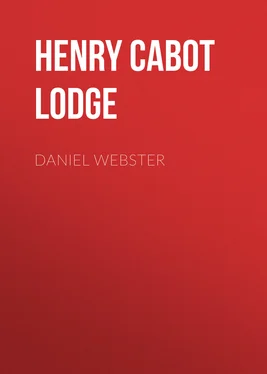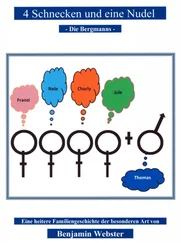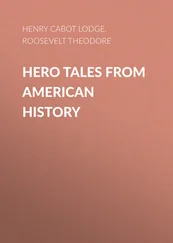Henry Cabot Lodge - Daniel Webster
Здесь есть возможность читать онлайн «Henry Cabot Lodge - Daniel Webster» — ознакомительный отрывок электронной книги совершенно бесплатно, а после прочтения отрывка купить полную версию. В некоторых случаях можно слушать аудио, скачать через торрент в формате fb2 и присутствует краткое содержание. Жанр: Биографии и Мемуары, История, foreign_edu, foreign_antique, foreign_prose, на английском языке. Описание произведения, (предисловие) а так же отзывы посетителей доступны на портале библиотеки ЛибКат.
- Название:Daniel Webster
- Автор:
- Жанр:
- Год:неизвестен
- ISBN:нет данных
- Рейтинг книги:5 / 5. Голосов: 1
-
Избранное:Добавить в избранное
- Отзывы:
-
Ваша оценка:
- 100
- 1
- 2
- 3
- 4
- 5
Daniel Webster: краткое содержание, описание и аннотация
Предлагаем к чтению аннотацию, описание, краткое содержание или предисловие (зависит от того, что написал сам автор книги «Daniel Webster»). Если вы не нашли необходимую информацию о книге — напишите в комментариях, мы постараемся отыскать её.
Daniel Webster — читать онлайн ознакомительный отрывок
Ниже представлен текст книги, разбитый по страницам. Система сохранения места последней прочитанной страницы, позволяет с удобством читать онлайн бесплатно книгу «Daniel Webster», без необходимости каждый раз заново искать на чём Вы остановились. Поставьте закладку, и сможете в любой момент перейти на страницу, на которой закончили чтение.
Интервал:
Закладка:
I do not propose to enter into or discuss the merits or demerits of the constitutional and legal theories and principles involved in the famous "college causes," or in any other of the great cases subsequently argued by Mr. Webster. In a biography of this kind it is sufficient to examine Mr. Webster's connection with the Dartmouth College case, and endeavor, by a study of his arguments in that and in certain other hardly less important causes, to estimate properly the character and quality of his abilities as a lawyer, both in the ordinary acceptation of the term and in dealing with constitutional questions.
The complete history of the Dartmouth College case is very curious and deserves more than a passing notice. Until within three years it is not too much to say that it was quite unknown, and its condition is but little better now. In 1879 Mr. John M. Shirley published a volume entitled the "Dartmouth College Causes," which is a monument of careful study and thorough research. Most persons would conclude that it was a work of merely legal interest, appealing to a limited class of professional readers. Even those into whose hands it chanced to come have probably been deterred from examining it as it deserves by the first chapter, which is very obscure, and by the confusion of the narrative which follows. Yet this monograph, which has so unfortunately suffered from a defective arrangement of material, is of very great value, not only to our legal and constitutional history, but to the political history of the time and to a knowledge of the distinguished actors in a series of events which resulted in the establishment of one of the most far-reaching of constitutional doctrines, one that has been a living question ever since the year 1819, and is at this moment of vast practical importance. Mr. Shirley has drawn forth from the oblivion of manuscript a collection of documents which, taken in conjunction with those already in print, throws a flood of light upon a dark place of the past and gives to a dry constitutional question the vital and human interest of political and personal history.
In his early days, Eleazer Wheelock, the founder of Dartmouth College, had had much religious controversy with Dr. Bellamy of Connecticut, who was like himself a graduate of Yale. Wheelock was a Presbyterian and a liberal, Bellamy a Congregationalist and strictly orthodox. The charter of Dartmouth was free from any kind of religious discrimination. By his will the elder Wheelock provided in such a way that his son succeeded him in the presidency of the college. In 1793 Judge Niles, a pupil of Bellamy, became a trustee of the college, and he and John Wheelock represented the opposite views which they respectively inherited from tutor and father. They were formed for mutual hostility, and the contest began some twelve years before it reached the public. The trustees and the president were then all Federalists, and there would seem to have been no differences of either a political or a religious nature. The trouble arose from the resistance of a minority of the trustees to what they termed the "family dynasty." Wheelock, however, maintained his ascendency until 1809, when his enemies obtained a majority in the board of trustees, and thereafter admitted no friend of the president to the government, and used every effort to subdue the dominant dynasty.
In New Hampshire, at that period, the Federalists were the ruling party, and the Congregationalists formed the state church. The people were, in practice, taxed to support Congregational churches, and the clergy of that denomination were exempted from taxation. All the Congregational ministers were stanch Federalists and most of their parishioners were of the same party. The college, the only seat of learning in the State, was one of the Federalist and Congregational strongholds.
After several years of fruitless and bitter conflict, the Wheelock party, in 1815, brought their grievances before the public in an elaborate pamphlet. This led to a rejoinder and a war of pamphlets ensued, which was soon transferred to the newspapers, and created a great sensation and a profound interest. Wheelock now contemplated legal proceedings. Mr. Plumer was in ill health, Judge Smith and Mr. Mason were allied with the trustees, and the president therefore went to Mr. Webster, consulted him professionally, paid him, and obtained a promise of his future services. About the time of this consultation, Wheelock sent a memorial to the Legislature, charging the trustees with misapplication of the funds, and various breaches of trust, religious intolerance, and a violation of the charter in their attacks upon the presidential office, and prayed for a committee of investigation. The trustees met him boldly and offered a sturdy resistance, denying all the charges, especially that of religious intolerance; but the committee was voted by a large majority. On August 5th, Wheelock, as soon as he learned that the committee was to have a hearing, wrote to Mr. Webster, reminding him of their consultation, inclosing a fee of twenty dollars, and asking him to appear before the committee. Mr. Webster did not come, and Wheelock had to go on as best he could without him. One of Wheelock's friends, Mr. Dunham, wrote a very indignant letter to Mr. Webster on his failure to appear; to which Mr. Webster replied that he had seen Wheelock and they had contemplated a suit in court, but that at the time of the hearing he was otherwise engaged, and moreover that he did not regard a summons to appear before a legislative committee as a professional call, adding that he was by no means sure that the president was wholly in the right. The truth was, that many of Mr. Webster's strongest personal and political friends, and most of the leaders with whom he was associated in the control of the Federalist party, were either trustees themselves or closely allied with the trustees. In the interval between the consultation with Wheelock and the committee hearing, these friends and leaders saw Mr. Webster, and pointed out to him that he must not desert them, and that this college controversy was fast developing into a party question. Mr. Webster was convinced, and abandoned Wheelock, making, as has been seen, a very unsatisfactory explanation of his conduct. In this way he finally parted company with Wheelock, and was thereafter irrevocably engaged on the side of the trustees.
Events now moved rapidly. The trustees, without heeding the advice of Mr. Mason to delay, removed Wheelock from the presidency, and appointed in his place the Rev. Francis Brown. This fanned the flame of popular excitement, and such a defiance of the legislative committee threw the whole question into politics. As Mr. Mason had foreseen when he warned the trustees against hasty action, all the Democrats, all members of sects other than the Congregational, and all freethinkers generally, were united against the trustees, and consequently against the Federalists. The election came on. Wheelock, who was a Federalist, went over to the enemy, carrying his friends with him, and Mr. Plumer, the Democratic candidate, was elected Governor, together with a Democratic Legislature. Mr. Webster perceived at once that the trustees were in a bad position. He advised that every effort should be made to soothe the Democrats, and that the purpose of founding a new college should be noised abroad, in order to create alarm. Strategy, however, was vain. Governor Plumer declared against the trustees in his message, and the Legislature in June, 1816, despite every sort of protest and remonstrance, passed an act to reorganize the college, and virtually to place it within the control of the State. The Governor and council at once proceeded to choose trustees and overseers under the new law, and among those thus selected was Joseph Story of Massachusetts.
Both boards of trustees assembled. The old board turned out Judge Woodward, their secretary, who was a friend to Wheelock and secretary also of the new board, and, receiving a thousand dollars from a friend of one of the professors, resolved to fight. President Brown refused to obey the summons of the new trustees, who expelled the old board by resolution. Thereupon the old board brought suit against Woodward for the college seal and other property, and the case came on for trial in May, 1817. Mr. Mason and Judge Smith appeared for the college, George Sullivan and Ichabod Bartlett for Woodward and the state board. The case was argued and then went over to the September term of the same year, at Exeter, when Mason and Smith were joined by Mr. Webster.
Читать дальшеИнтервал:
Закладка:
Похожие книги на «Daniel Webster»
Представляем Вашему вниманию похожие книги на «Daniel Webster» списком для выбора. Мы отобрали схожую по названию и смыслу литературу в надежде предоставить читателям больше вариантов отыскать новые, интересные, ещё непрочитанные произведения.
Обсуждение, отзывы о книге «Daniel Webster» и просто собственные мнения читателей. Оставьте ваши комментарии, напишите, что Вы думаете о произведении, его смысле или главных героях. Укажите что конкретно понравилось, а что нет, и почему Вы так считаете.












